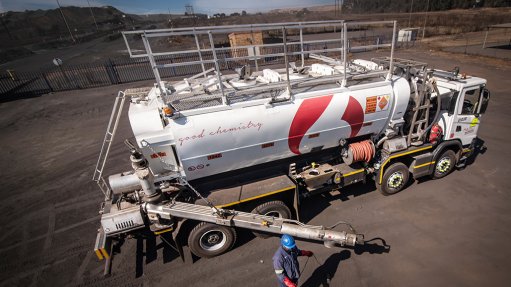The downside of renewable energy
I have just read an article by one Leo Smith. I do not know him. His article is titled the ‘Limitations of renewable energy’ – and it is hard hitting.
Smith says of renewable energy: “It is against this backdrop of extreme emotional attachment to ‘renewable energy’ and extreme ignorance of the principles underlying power generation, and in the face of extreme opposition to any contradiction of its precepts, that we have to – perhaps vainly – attempt to lead those who are prepared to be led down a path of a somewhat technical nature in order to understand why, despite its seeming usefulness, it is in the end a deeply disappointing, wasteful and ultimately fruitless exercise. And why simply spending more money on it will never achieve the hoped-for results.”
Smith’s point is not that renewable energy is bad. He argues that renewable energy is unpredictably intermittent and not reliable, that, owing to its intermittent nature, it has to be backed up by nonrenewable energy like inefficient gas turbines and that it takes up a lot of space.
I doubt that anybody could argue with the assertion that renewable energy is unpredictably intermittent or that it has to be backed up by nonrenewable energy. But takes a lot of space? He points it out like this: “The UK has an electrical demand of about 35 GW. For a 35 GW average output, we would need 8.75 km2 of a coal or nuclear power station, 1 400 km2 of solar power, between 17 000 km2 and 35 000 km2 of wind power and 87 500 km2 to 175 000 km2 of biofuel.”
As far as I can see, his figures are correct. This means that, unless you have a lot of spare space (and South Africa qualifies), you are only going to be able to supply some of your power needs by renewable means – and certainly not all.
Many people argue that the average decrease in demand (as seen by conventional power stations) afforded by intermittent generators reduces overall demand and fuel. This is true, but only to an extent. The fact that renewable energy can disappear in less than an hour means that you have to replace it with some form of generation that is quickly brought up to speed – in this case, the gas turbine, which is not very efficient. An alternative is to provide storage in the form of hydropower storage (pumped storage) but, unfortunately, the cycle time for this is not of the order of a few hours, unless the storage facility is very big.
Smith points out that many people think the grid actually stores energy. Apart from a few seconds of rotating storage in the form of rotors of motors, the grid cannot store any energy and supplies must be generated every second. Thus, all that connecting a wind turbine to the grid does is to reduce the load on some other generator. Since very few generators, if any, are most efficient at reduced load, the net result is to consume more fuel for each kilowatt hour than otherwise.
Some South African researchers have proved that renewable energy is very valuable because, at times, it kept the power system going, thus supplying power to people and industries which were producing goods and which would otherwise not have produced these goods. This is an argument that can only be valid when you have a country in which the leader- ship is too stupid to build baseload power stations to keep up with the baseload; in the worst case, it could be described as luck that the wind was blowing at the time. The matter really comes down to some careful thought; if this government goes hell for leather for renewable energy and forces Eskom to buy it from producers at a rate that it cannot recover in sales, then the situation is that Eskom is simply forced to build baseload stations anyway and grit its teeth at what it pays for renewable energy. But the biggest problem of all is not this matter of careful thought – it is people who believe themselves superior beings because they support renewable energy and that those who do not are troglodytes. No amount of careful thought will change this.
Article Enquiry
Email Article
Save Article
Feedback
To advertise email advertising@creamermedia.co.za or click here
Press Office
Announcements
What's On
Subscribe to improve your user experience...
Option 1 (equivalent of R125 a month):
Receive a weekly copy of Creamer Media's Engineering News & Mining Weekly magazine
(print copy for those in South Africa and e-magazine for those outside of South Africa)
Receive daily email newsletters
Access to full search results
Access archive of magazine back copies
Access to Projects in Progress
Access to ONE Research Report of your choice in PDF format
Option 2 (equivalent of R375 a month):
All benefits from Option 1
PLUS
Access to Creamer Media's Research Channel Africa for ALL Research Reports, in PDF format, on various industrial and mining sectors
including Electricity; Water; Energy Transition; Hydrogen; Roads, Rail and Ports; Coal; Gold; Platinum; Battery Metals; etc.
Already a subscriber?
Forgotten your password?
Receive weekly copy of Creamer Media's Engineering News & Mining Weekly magazine (print copy for those in South Africa and e-magazine for those outside of South Africa)
➕
Recieve daily email newsletters
➕
Access to full search results
➕
Access archive of magazine back copies
➕
Access to Projects in Progress
➕
Access to ONE Research Report of your choice in PDF format
RESEARCH CHANNEL AFRICA
R4500 (equivalent of R375 a month)
SUBSCRIBEAll benefits from Option 1
➕
Access to Creamer Media's Research Channel Africa for ALL Research Reports on various industrial and mining sectors, in PDF format, including on:
Electricity
➕
Water
➕
Energy Transition
➕
Hydrogen
➕
Roads, Rail and Ports
➕
Coal
➕
Gold
➕
Platinum
➕
Battery Metals
➕
etc.
Receive all benefits from Option 1 or Option 2 delivered to numerous people at your company
➕
Multiple User names and Passwords for simultaneous log-ins
➕
Intranet integration access to all in your organisation


















